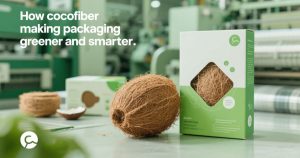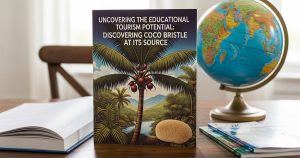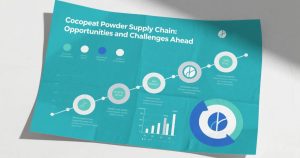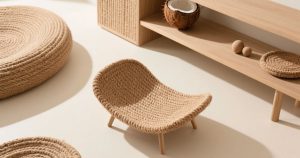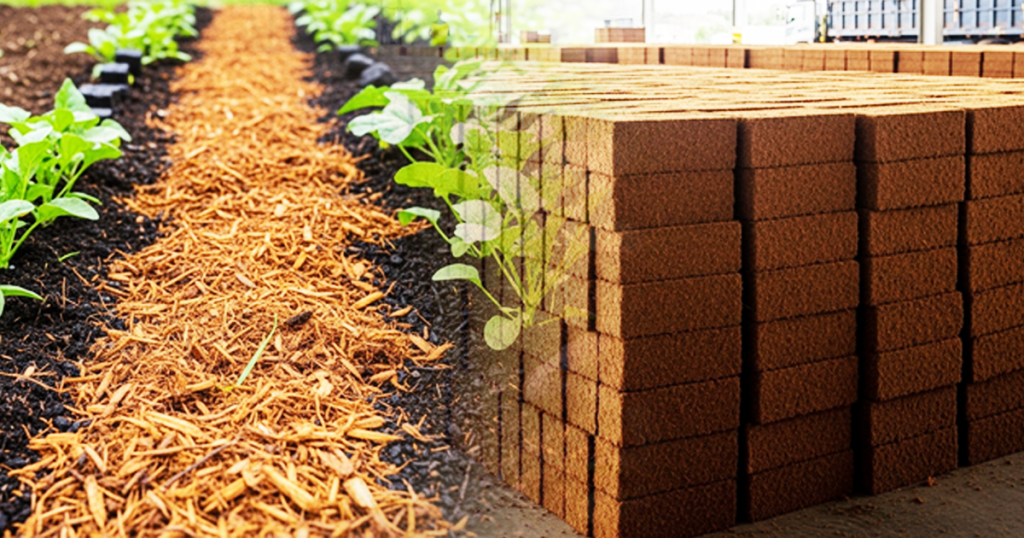Coco Bristle Waste: A Hidden Export Opportunity
The global pursuit of sustainability has triggered a revolution in how we perceive agricultural by-products. Among these, coco bristle a coarse fiber extracted from the outer husk of coconuts has undergone a striking transformation.
Once considered agricultural waste, coco bristle now finds itself at the center of a burgeoning green industry, fueling eco-conscious markets across Europe, North America, and parts of Asia.
As a researcher in cocopeat and its derivatives, I have closely observed this shift. What was once discarded as an unusable remnant of coconut processing is now being repurposed into high-value products that align with the principles of circular economy and environmental preservation.
From Agricultural Waste to Raw Gold
Coco bristle, a coarser part of coconut husk fiber, is typically left over after the extraction of coir (the softer, more flexible fiber used in doormats and ropes). For decades, coco bristle was viewed as a problematic by-product with minimal market value.
However, with the growing awareness of environmental impact caused by synthetic materials, especially plastics, industries have begun to explore coco bristle’s natural durability, water resistance, and biodegradability.
Today, it is an essential component in a variety of sustainable products from household brushes and industrial-grade scrubbers to luxury eco-friendly furniture padding.
This change did not happen overnight. It required advancements in fiber processing, chemical-free cleaning technologies, and material innovation to elevate coco bristle into a viable, premium-grade commodity.
The Processing Journey: Turning Raw Fiber into High-Quality Material
1. Collection and Initial Cleaning
The first step begins at the coconut processing centers, particularly in coastal regions of Indonesia, India, and Sri Lanka. Here, coco bristle is separated manually or by machine from the rest of the husk. The fibers are then sun-dried and sorted by thickness and length.
2. Mechanical Conditioning and Sterilization
To achieve export-grade quality, the dried bristle undergoes mechanical conditioning a process involving carding and combing to align the fibers. This is followed by natural sterilization methods, often using steam or ozone treatment, to remove pathogens without compromising the fiber’s integrity.
3. Customization for Application
Depending on its end-use, coco bristle may be dyed using vegetable-based coloring or reinforced with biodegradable binders. The customization phase is crucial in creating niche products tailored for eco-conscious consumers, such as handcrafted brushes, interior design elements, and zero-waste lifestyle accessories.
Export Market Trends and Rising Global Demand
Coco bristle products are witnessing a sharp rise in demand, particularly in countries pushing for plastic-free alternatives. Germany, Japan, the Netherlands, and the United States are currently among the top importers.
In recent years, fair-trade certification and traceability have become deciding factors for buyers. Exporters must now not only meet quality specifications but also demonstrate ethical sourcing and sustainable processing practices.
This trend presents an opportunity for producers in coconut-rich countries to invest in cleaner technologies and capacity-building to meet international standards.
Moreover, the luxury segment is opening new avenues. Designers and architects are experimenting with coco bristle for its texture and natural appeal, using it in furniture, soundproofing panels, and artistic installations.
Scientific and Economic Value in Harmony
From a research standpoint, coco bristle’s high lignin content gives it superior rigidity and decay resistance compared to other plant-based fibers. These characteristics make it ideal for products that require mechanical strength without environmental compromise.
Economically, transforming coco bristle into export-worthy goods can multiply its market value by up to 15 times. For rural communities and small enterprises, this means job creation, skill development, and better income all while contributing to a sustainable materials economy.


